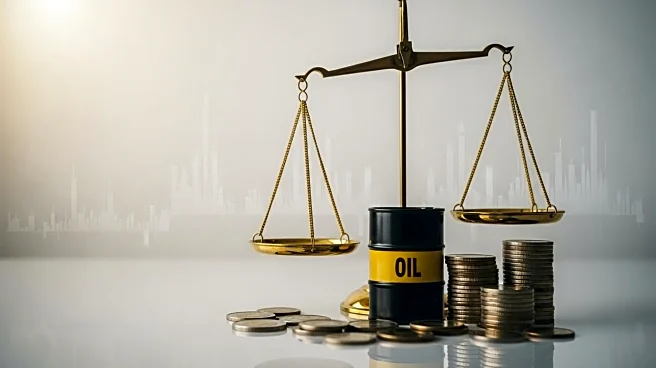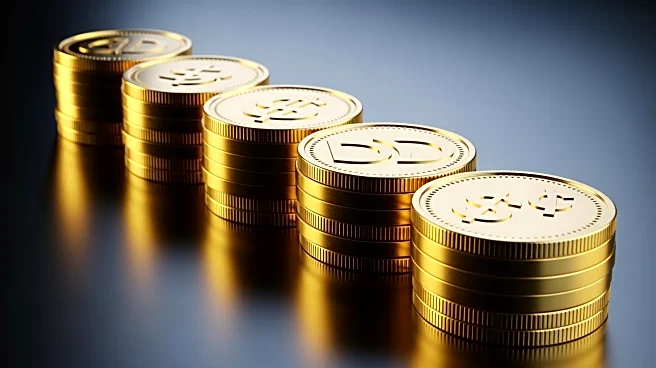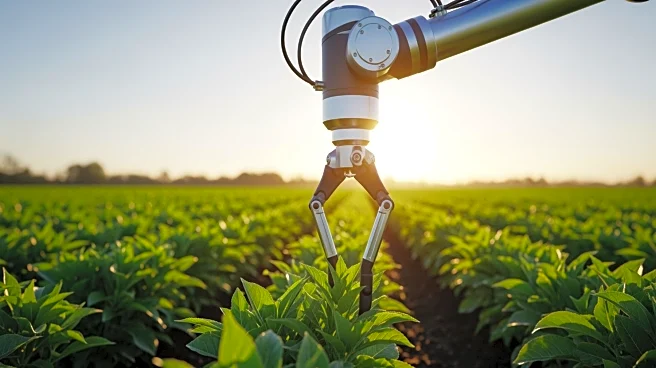What is the story about?
What's Happening?
The Russian economy is experiencing a slowdown, exacerbated by a fuel crisis caused by Ukrainian drone attacks that have disrupted refining capacity. This has led to increased fuel prices and economic strain on consumers. The Kremlin's focus on defense spending, which constitutes 41% of total government expenditure, has distorted labor markets and contributed to inflation. The Central Bank has raised lending rates to combat inflation, resulting in a GDP contraction of 0.6% in early 2025. Russian officials, including President Putin, have acknowledged the economic slowdown, with predictions of stagnation and potential recession.
Why It's Important?
The economic challenges facing Russia have significant implications for its ability to sustain its wartime efforts in Ukraine. High defense spending and economic distortions may lead to increased unemployment, potentially driving more individuals to enlist in the military for financial stability. The situation also pressures the Russian government budget, which is already facing a deficit. The Kremlin's reliance on oil prices and the sanctions regime further complicates its economic strategy. Adjustments in military tactics or increased openness to negotiations may be necessary if economic conditions worsen.
What's Next?
The Russian government may need to consider tax increases to address budget deficits, with potential hikes in value-added tax impacting consumer prices and living standards. Economic pressures could force the Kremlin to reassess its military strategy in Ukraine, possibly scaling back offensives or seeking diplomatic solutions. The ongoing economic strain may also lead to increased public dissatisfaction, challenging the government's ability to maintain support for its policies.
Beyond the Headlines
The economic slowdown in Russia highlights the broader geopolitical tensions affecting global markets. The interplay between military spending and economic stability raises ethical questions about prioritizing defense over civilian needs. Long-term economic impacts could reshape Russia's domestic and foreign policy, influencing its role in international affairs.















